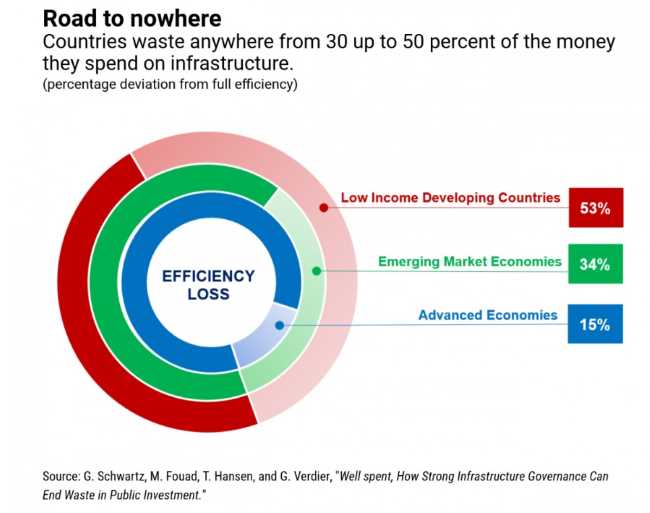
The Covid-19 pandemic has devastated the world economy and triggered the worst economic crisis since the Great Depression of 1930s. Public investment will play a key role in raising the economic output and lifting standard of living. History can provide several examples for how public investment was used as a tool to boost economies and ensure welfare of citizens. In most cases, national governments resorted to infrastructure investments to pull the economies ravaged by wars and recessions.
The current economic crisis has pushed the world’s largest economies into an unprecedented crisis marked by low levels of economic activity and high levels of debt. Traditional wisdom has it that all government expenditure, productive and otherwise, can boost crisis-ridden economies. But, several economies like India are facing the Covid-induced recession with very little funds to spare. The fiscal stimulus announced by the Narendra Modi government is unlikely to see huge infusion of funds into the system. So, the governments need to spend their resources on the projects that will give long-term benefits to the economy. They need infrastructure governance—strong institutions to plan, allocate, and implement quality public infrastructure, say Gerd Schwartz, Manal Fouad, Torben Hansen, and Geneviève Verdier in an article published by IMF.
READ I Free trade pacts: Why India must be wary of signing more

READ I Covid-19: Most countries report disruption in health services
Public investment is often criticised for expensive and poor-quality infrastructure that offers little benefit for the people. In most cases, taxpayer money is used on large projects that are long-term and complex, resulting in time and cost over-runs, leading to large scale corruption. Efficient infrastructure governance is one sure-fire way to reduce such waste. The article cites a book, ‘Well Spent: How Strong Infrastructure Governance Can End Waste in Public Investment’ to spell out how nations can design good infrastructure governance.
The authors say countries waste about a third of infrastructure spending due to various inefficiencies. In low-income countries, almost half of the investment go waste. The efforts to tide over the economic crisis triggered by the coronavirus outbreak must involve unlocking of this potential. The article says more than half of these losses could be avoided by resorting to good infrastructure governance. The current crisis offers an opportunity to ensure future growth through well-designed public infrastructure.
READ I Nirmala Sitharaman asks banks to lend aggressively to boost GDP growth
Public investment can help boost inclusive growth by reducing inequalities and creating economic opportunities. Investments in public health and, digital, environment-friendly infrastructure can lift standard of living and enhance the resilience of countries to climate crisis. It will also help nations attain the Sustainable Development Goals (SDGs). Infrastructure investments can help developed nations to address the issue of aging infrastructure like roads, bridges, and healthcare systems. To achieve these goals, the countries need to spend better and smarter, say the authors.
Infrastructure spending by governments has been a topic of heated debate since the beginning of the current economic crisis. Several economists and policymakers favour infrastructure spending by governments over consumption spending. Infrastructure spending offers short-term demand stimulus as well as long-term supply stimulus. The long-term effects of efficient infrastructure spending also include higher output and increase in tax base that could end the necessity of increases in tax rates.
